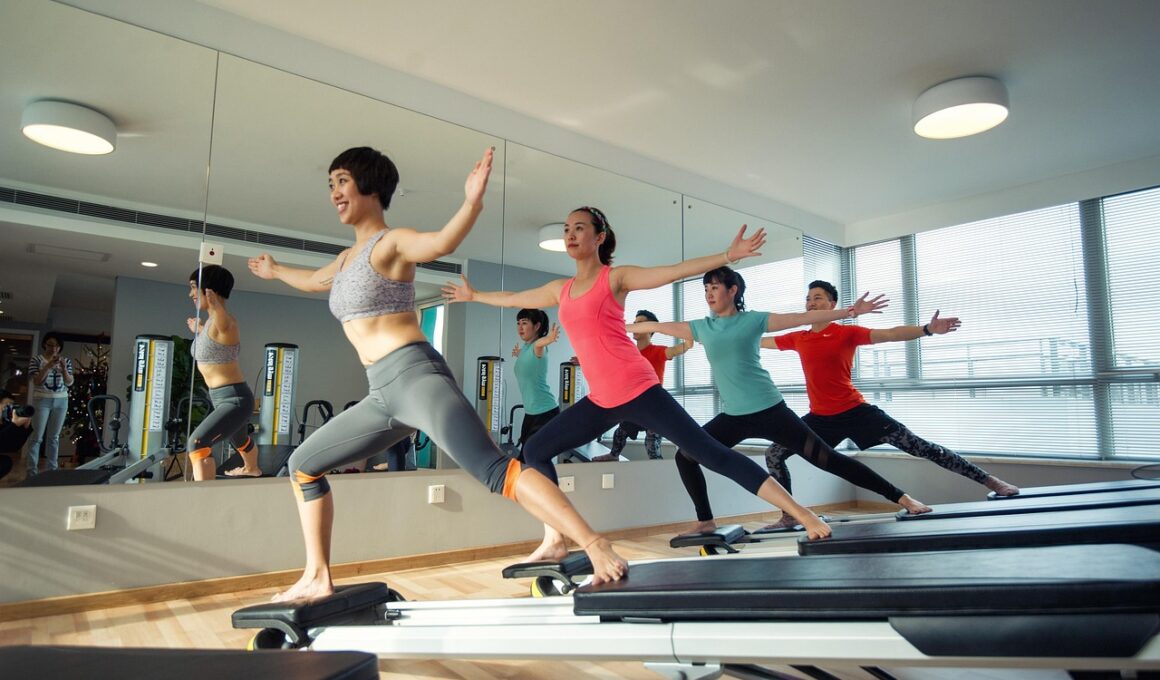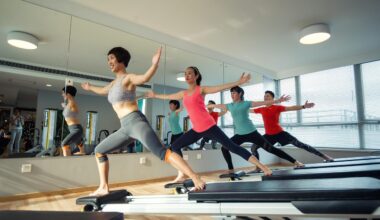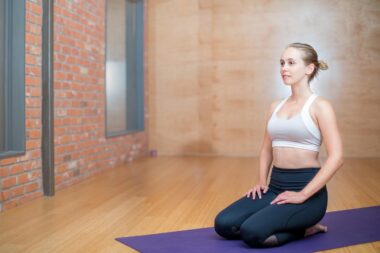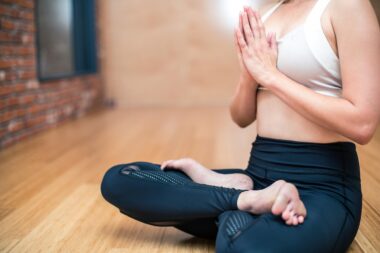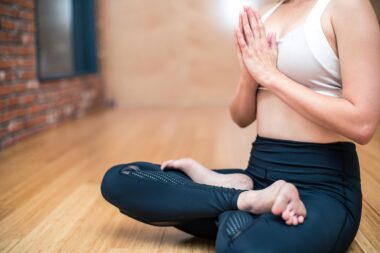Understanding Progress Tracking in Pilates
Tracking progress in Pilates Mat exercises is pivotal to enhancing your practice and encouraging personal growth. It allows you to monitor improvements, identify areas needing attention, and stay motivated throughout your journey. Initially, one should establish specific goals as a foundation for progress evaluation. Setting measurable objectives enables you to witness tangible results and apply necessary adjustments. Therefore, both short-term and long-term goals should be defined clearly. Incorporate a journal or an app focused on Pilates to document your workouts and feelings. Each session, note the exercises performed and the adjustments made to your technique. Regularly reviewing these records will show you a clear path of progression over time. Besides tracking physical improvements, also consider how your flexibility, strength, and overall well-being evolve. Utilize check-ins to assess various aspects like endurance, posture, and flexibility consistently. Joining a community or a class can further enhance progress tracking by providing you with feedback and support. This external guidance is beneficial as you strive to refine and develop your practice, making your Pilates journey fulfilling and dynamic.
Tools for Effective Progress Monitoring
In order to optimally track your progress in Pilates Mat exercises, several tools and methods can enhance your experience. Start with a Pilates-specific app that allows you to record your workouts efficiently. Many of these applications offer features like video demonstrations, which you can compare against your own form. Also consider using a fitness tracker to monitor heart rate and calorie burn during your classes. This data can reveal insights about your intensity levels and endurance enhancements. In addition, recording yourself while doing the exercises can provide visual feedback. By watching videos of yourself, you can ascertain posture alignment and technique, leading to improvements in form. Pair these recorded sessions with notes from your journal that highlight how you felt during practice. An excellent practice is to reflect deeply on what went well and what could be improved. Additionally, progress reports can be shared with therapists or instructors. They can offer professional insights tailored to your specific needs and goals. By utilizing these tools regularly, you will not only understand your progress better but also enjoy your Pilates journey significantly more.
To further enhance your progress in Pilates, develop a routine that includes consistent assessments. Periodic assessments may reveal astonishing details about your development skills that daily sessions might not showcase. Every month or so, revisit foundational exercises and compare how you execute them. Observing changes in your ability to perform these foundational movements can motivate and encourage continued practice. Note improvements like increased repetitions, improved alignment, or longer holds. Such evaluations can be a source of motivation, reminding you of how far you’ve come. Additionally, you can take pictures of yourself performing specific exercises over time. These snapshots serve as visual milestones of your progress and improvements in body strength and flexibility. Consider sharing these images with your Pilates class or online community for encouragement. They may inspire others while creating connection among practitioners. Also, celebrate your milestones, no matter how small they may seem. Setting out toward small achievements validates your hard work and gives you the strength to keep pushing forward. Within this journey, continuous self-acknowledgment is key to maintaining motivation and enthusiasm for your practice.
Engaging in Community Feedback
Being part of a Pilates community can significantly bolster your progress tracking and personal development. Engaging with fellow practitioners provides opportunities for feedback that improve your performance. Consider joining group classes or online forums dedicated to Pilates Mat practice. By sharing your experiences and challenges, you cultivate a supportive environment that fosters motivation and accountability. Here, you can solicit constructive criticism, ask for tips, and exchange insights on effective techniques. The camaraderie that develops in these settings helps demystify the practice, revealing that struggles are often universal. Collaborating within a community can also introduce you to different instructors with varied styles and methodologies. These new perspectives can offer fresh strategies for tracking progress. Another benefit of community engagement is that it often leads to social accountability. Knowing that others are watching your journey can encourage you to maintain a consistent practice. Many individuals also find that working together or sharing progress creates a sense of responsibility to their peers, making the experience fulfilling. Utilize virtual platforms if in-person options aren’t available in your area, ensuring you can connect regardless of location or timing.
Encouraging variety in your Pilates practice can also contribute significantly to effective progress tracking. Variation not only keeps your routine exciting but also helps you target different muscle groups and improve functional strength. One effective way to introduce variation is through different classes, such as reformer Pilates or barre workouts. Each form will challenge you in unique ways, showcasing areas of strength and areas needing improvement. Furthermore, consider modifying exercises within your mat practice. For instance, varying your stance or the tempo of an exercise can lead to remarkable insights about your capabilities. Understand that progress is not always linear; it often features ebbs and flows. By embracing various forms of exercise, you’ll gain a comprehensive view of your progress rather than a narrow focus. Additionally, regularly changing your focus within workouts—from flexibility to strength—provides natural progression markers. Every new adjustment or variation can reveal a different aspect of your development journey. Overall, maintaining an adaptable attitude toward your Pilates practice will not only enhance your experience but also ensure significant advancements.
Tracking Mental and Emotional Progress
Beyond physical advancements, tracking mental and emotional progress is crucial in your Pilates journey. Integrating mindfulness into your practice can deepen your awareness of how the exercises impact your emotional and psychological state. It is essential to conduct regular self-reflections after workouts, assessing how your mental well-being shifts over time. Journals can be valuable tools for this purpose; simply note how you felt pre- and post-workout. There might be exercises that elevate your mood or relieve stress, which becomes essential insight in your journey. When you feel this emotional connection to your practice, it becomes more meaningful, further inspiring you to continue. Additionally, consider establishing a gratitude practice surrounding your Pilates exercises. Reflecting on what you appreciate about your body and practice can foster a positive attitude toward challenges. Practicing Pilates is not just about improving physical strength; cultivating mental resilience through your sessions can be transformative. Acknowledging both mental and physical progress provides a holistic view of your development, emphasizing that Pilates is a multi-dimensional journey toward health and wellness.
Lastly, celebrate your successes, however small, as part of your progress tracking approach in Pilates Mat exercises. Recognizing achievements not only provides motivation but also reinforces your commitment to your practice. Create a rewards system that incentivizes you to meet specific goals. The rewards could range from a relaxing day off to purchasing new workout gear or simply treating yourself to a spa day. This not only adds an element of fun but also instills a sense of accomplishment. Furthermore, consider sharing your successes with your Pilates community. Posting your journey on social media or within a group can foster inspiration and encourage interaction among fellow practitioners. Gathering feedback from your peers can also help tighten your bonds and encourage everyone to continue pushing their boundaries. By documenting your achievements and reflecting, you set the stage for future successes. When you celebrate milestones, big or small, you generate a positive feedback loop that further motivates continuous improvement. As your journey unfolds, keep your end goals in sight while appreciating every step you take along the way. This perspective will enhance your Pilates experience, making it rewarding.
